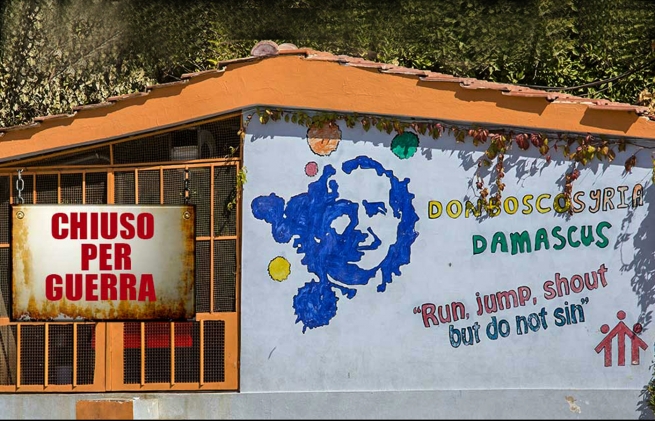The Salesians have been present in Syria since 1948 and experience the anguish of thousands of children and young people across Damascus and Aleppo.
A Salesian has raised his voice to warn us of a fundamental aspect of this war: the objectivity of information, or lack of. Fr Mounir Hanachi recognizes that the Syrian government is not made up of "saints or angels", yet he claims that in this conflict most of the suffering population of Syria is on his side.
"Ghouta is not a district of victims persecuted by the regime, as they report," says the Salesian. "It is the exact opposite. For years, they have fired missiles on the capital, killing innocent, poor civilians. How many children are dead here that nobody talks about? These are not the opposition. They are terrorists. They come from all over the world, and the Syrian army has the right to defend the dignity of Syrians and the country."
The bombing of Ghouta has intensified in the last week as the government prepares the final assault to retake the district. "All day army planes are heard flying over the capital. I hope the attack will start soon and that the area will finally be freed, as Aleppo has been freed," he says.
The war in Syria is now in its eighth year. A war described on social networks through images and messages that only "partially inform" us with facts, feed and form prejudices in our consciences, reinforce false perceptions of reality. Many questions remain unanswered. How did this conflict start? Who finances these rebels who for years have been entrenched in Damascus, Aleppo, and other cities in Syria? And finally, are there any other interests for the forces involved in this war?
It is important for these powers to exploit the capacity of digital media and to create a blur the boundaries of objective information, maintain a cloud of disinformation, provide its own.
Just this year, Pope Francis warned of this danger: "The effectiveness of fake news is primarily due to their mimetic nature, ie the ability to appear plausible. In the second place, these false but seemingly true news articles are captious, in the sense that they are able to capture the attention of the recipients, relying on stereotypes and widespread prejudices within a social fabric."
It is important to exercise critical ability and to ask oneself if everything that is said, seen or read is true. It is good to ask if everything that appears on social networks is true, are facts.
In the case of Syria, one fact is that the disinformation is evident and the great absentee is the mainstream media, the voice of Christians and people on the “this” side.
"Much of what has been narrated about Syria in recent years has been manipulated," concludes Fr Hanachi. "Why does nobody ask us what is happening here? I beg you, all we ask is that you narrate what we have been living here for the past seven years."


